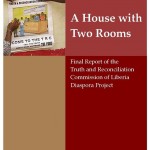Representation, Outcomes, and Fairness in Legal Proceedings
 As my colleague Rebecca Blemberg recently blogged about, California has moved in the direction of recognizing a right to counsel for civil litigants with critical legal needs.
As my colleague Rebecca Blemberg recently blogged about, California has moved in the direction of recognizing a right to counsel for civil litigants with critical legal needs.
The concept of a constitutional right to counsel in certain civil cases is often referred to as “Civil Gideon,” after the Supreme Court decision that established the right to counsel in criminal cases, Gideon v. Wainwright. Critics charge that recognizing a civil version of the right established in Gideon will cause “waste” by increasing litigation. A recent Wall Street Journal law blog post quoted Ted Frank, for instance: “What is clear is that you will never have a simple eviction because every single one of them will be litigated. . . . The rest of the poor will be worse off because of that.”
I guess “waste” is in the eye of the beholder. As a student noted on another blog,
While I understand the drawback of added litigation, I’ve never found it to be particularly persuasive enough to override a law aimed at a greater level of fairness and justice. In most custody cases, an agreement is more likely reached when the party who can afford an attorney bullies the other party into signing something. As for eviction cases, I believe that at the end of a notice period, a landlord must file an eviction case with the court anyway to have the eviction legally recognized. Moreover, the American judicial system can be overwhelming, confusing and inevitably adversarial. While many civil parties successfully file suits pro se, I think it is fair to say that they often lack the knowledge and skills to successfully plead a case.
Indeed, it seems beyond dispute that pro se litigants are, on average, overwhelmingly disadvantaged by lack of representation.


